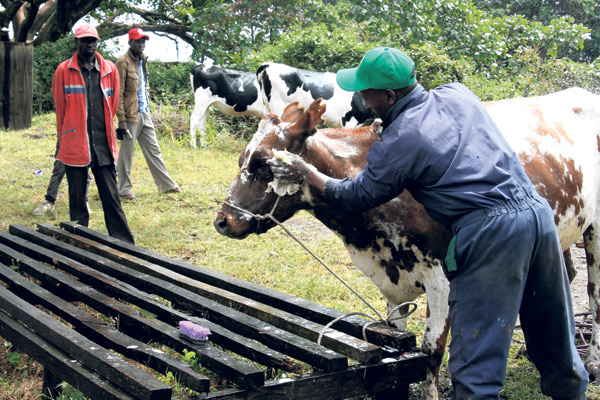This feature was first published in Seeds of Gold.
The skin is the largest organ of an animal and the most visible indicator of its health status. It is commendable that you pay close attention to your animals and note changes on their coat.
A rough hair coat may be an indication of diseases in the body, parasites on the skin, worms in the digestive system, nutritional (vitamin) and mineral deficiencies.
You have indicated that you have dewormed your animals but did not say the drug used and the dosage given. Worms in the digestive system compete for nutrients depriving the animal the much needed minerals for sustenance of body functions and productivity.
Using de-wormers as prescribed would help remove the pests in the digestive system, otherwise you will not observe any improvement. Misuse can lead to resistance.
It is always advisable to consult a registered veterinarian on the appropriate de-wormer to use and the recommended dosage.
Many conditions affecting the whole body in cattle, which lead to debilitation and poor feed consumption also manifest through rough hair coat.
Your animals should be seen by a veterinarian who will check their health status and give medical treatment if required. He will also advise you on many other disease-control and prevention measures.
Cattle require adequate amounts of nutrients to support growth, milk production and the growing foetus during pregnancy. You have not indicated how you feed your animals. However, it is important to ensure that they receive adequate levels of energy, proteins, roughages, minerals and vitamins. The main sources of energy include concentrates such as maize germ, dairy meal and maize bran. Proteins are derived from fish meal, cotton seed cake and various fodder plants like calliandra, sesbania and desmodium.
VITAMINS AND MINERALS
Vitamins and minerals are required for the normal body functions and you can get the appropriate mineral mixes from your agrovet and use them as recommended. Your animals should also be provided with clean drinking water always.
Allergies too lead to rough appearance of the skin. External parasites such as ticks, fleas and lice suck blood and cause irritation, which leads to poor growth, loss of production and a rough hair coat.
To control the above mentioned parasites, cattle should be sprayed/dipped with the right concentration of acaricide. However, ticks have been known to develop resistance to some acaricides after extended use.
You indicated that your animals have been dipped. Consult your area veterinary professional on the recommended frequency of dipping or spraying.
Please check whether there are ticks still attached to the skin after dipping as this could be an indicator of resistance. Some allergies such as those against sunlight commonly found in light coloured animals may also lead to rough hair coat. However, this rarely affects all animals in the herd.








